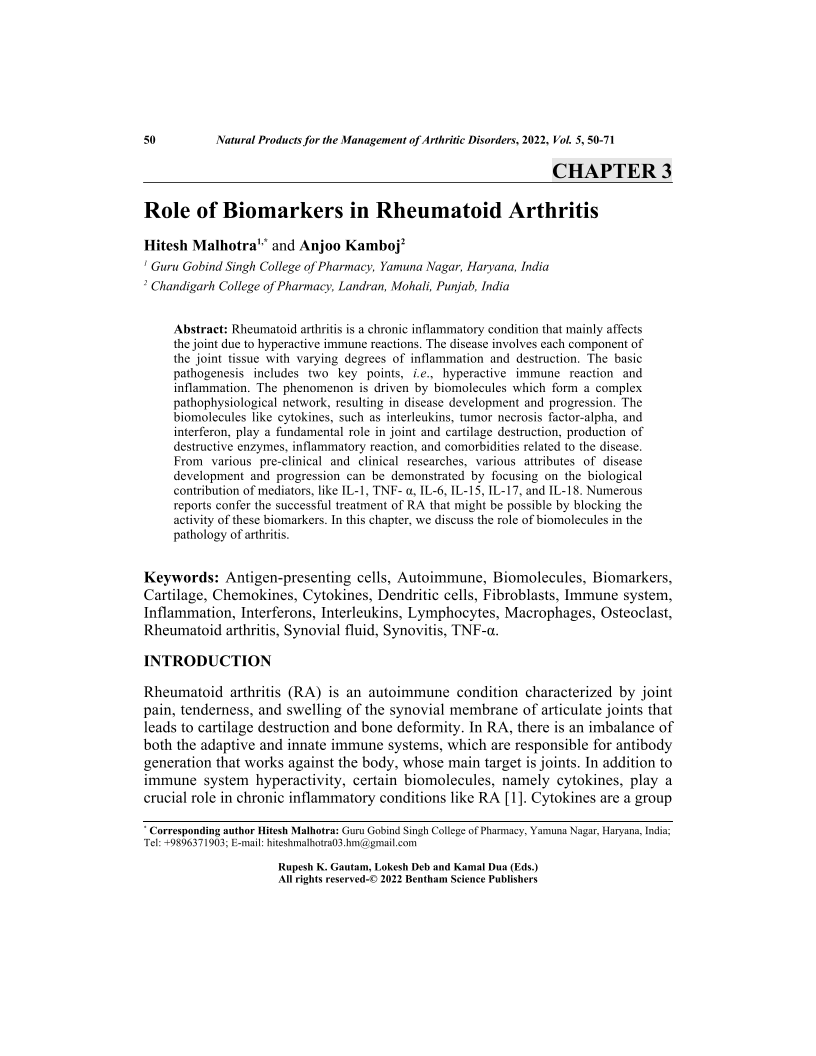Role of Biomarkers in Rheumatoid Arthritis

- Authors: Hitesh Malhotra1, Anjoo Kamboj2
-
View Affiliations Hide Affiliations1 Guru Gobind Singh College of Pharmacy, Yamuna Nagar, Haryana, India 2 Chandigarh College of Pharmacy, Landran, Mohali, Punjab, India
- Source: Natural Products for the Management of Arthritic Disorders , pp 50-71
- Publication Date: August 2022
- Language: English
Role of Biomarkers in Rheumatoid Arthritis, Page 1 of 1
< Previous page | Next page > /docserver/preview/fulltext/9789815050776/chap3-1.gif
Rheumatoid arthritis is a chronic inflammatory condition that mainly affects the joint due to hyperactive immune reactions. The disease involves each component of the joint tissue with varying degrees of inflammation and destruction. The basic pathogenesis includes two key points, i.e., hyperactive immune reaction and inflammation. The phenomenon is driven by biomolecules which form a complex pathophysiological network, resulting in disease development and progression. The biomolecules like cytokines, such as interleukins, tumor necrosis factor-alpha, and interferon, play a fundamental role in joint and cartilage destruction, production of destructive enzymes, inflammatory reaction, and comorbidities related to the disease. From various pre-clinical and clinical researches, various attributes of disease development and progression can be demonstrated by focusing on the biological contribution of mediators, like IL-1, TNF- α, IL-6, IL-15, IL-17, and IL-18. Numerous reports confer the successful treatment of RA that might be possible by blocking the activity of these biomarkers. In this chapter, we discuss the role of biomolecules in the pathology of arthritis.
-
From This Site
/content/books/9789815050776.chap3dcterms_subject,pub_keyword-contentType:Journal -contentType:Figure -contentType:Table -contentType:SupplementaryData105

